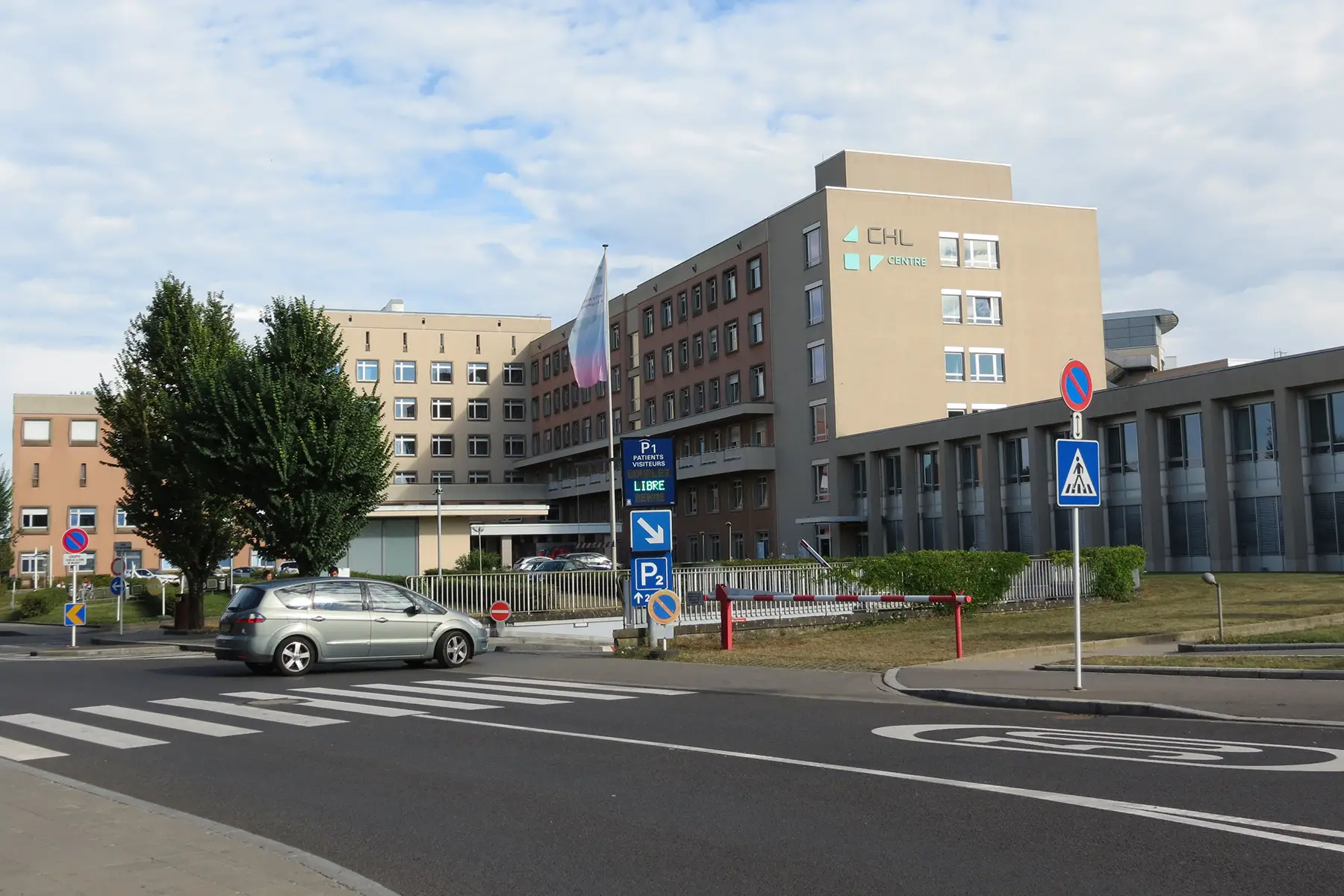Healthcare standards in Luxembourg are good, with most general medical needs met through the country’s public health system. This includes women’s healthcare services in Luxembourg. You can access much of what you need through the state health insurance system and also top up with private insurance for additional services.
Here’s an overview of the main women’s healthcare topics, with sections on:
- Women’s health in Luxembourg
- Accessing women’s healthcare services in Luxembourg
- Insurance for women’s healthcare in Luxembourg
- Gynecologists in Luxembourg
- Women’s contraception in Luxembourg
- Maternity care services in Luxembourg
- Breastfeeding in Luxembourg
- Fertility treatment in Luxembourg
- Abortion in Luxembourg
- Menopause in Luxembourg
- Cancer screenings in Luxembourg
- Sexual health in Luxembourg
- Availability and cost of feminine hygiene products
- Women’s clinics and health centers in Luxembourg
- Women’s mental health services in Luxembourg
- Services dealing with abuse and violence against women in Luxembourg
- Useful resources
Cigna Global
Enjoy peace of mind while living in Luxembourg with Cigna Global’s long-term international health insurance plans (12+ months). Get tailored coverage, direct billing with many providers, complex case management, and global care on demand, with access to a network of 1.5+ million doctors, specialists, and therapists.
Women’s health in Luxembourg
Luxembourg is one of the wealthiest countries in the EU and this is evident in the quality of its healthcare for both men and women. It ranks 7th of 36 countries surveyed in the 2018 Euro Health Consumer Index. All residents have access to state healthcare, with the majority of costs covered through public health insurance.

As a result, Luxembourg ranks 10th in the European Union in terms of health on the 2022 Gender Equality Index with a score of 90.4 out of 100. However, there is some room for improvement given the country’s wealth. For example, 66% of women aged over 16 in Luxembourg are in good health, compared to 71% of men in the country and 67% of women in the EU overall. Having said that, only 1% of women have unmet medical test needs compared to 4% across the EU.
Accessing women’s healthcare services in Luxembourg
In 2022, Luxembourg achieved its highest scores on the Gender Equality Index regarding healthcare access, with 90.4 out of 100. This indicates near-universal access.
All citizens and residents have access to public healthcare services through the state’s health insurance scheme. For women, this means access to maternity care, cancer screenings, and sexual health services. Of course, there are also private medical services available which you can access if you have private health insurance or the funds to pay for your healthcare.
Insurance for women’s healthcare in Luxembourg
Public health insurance in Luxembourg is run by the National Health Fund (CNS – French: Caisse Nationale de Santé, German: Gesundheitskasse, Luxembourgish: d’Gesondheetskeess). All workers and self-employed make contributions through social security which covers them and dependent family members. Luxembourg also extends a safety net for unemployed residents and those on low incomes, who get coverage without having to pay.
The state’s insurance scheme caters to women’s healthcare needs in Luxembourg, allowing free or low-cost access to various services including:
- Maternity care
- Sexual healthcare
- Gynecological care
- Some cancer screenings
In addition to the public insurance scheme, you can take out private health insurance to cover any costs not included as well as pay for extra treatments and services such as:
- Private hospital beds
- Most complementary therapies
- Prescription or medication costs
Several international health insurance providers in Luxembourg offer English-speaking expat-friendly packages. These include:
Residents of EU/EFTA countries on short visits to Luxembourg can access many services through their European Health Insurance Card (EHIC).
Gynecologists in Luxembourg
Gynecologists in Luxembourg are medical specialists. As such, you can access gynecologists directly without a GP referral. Moreover, you are free to choose your own gynecologist/obstetrician. According to 2017 statistics, there are 16.9 gynecologists per 100,000 people in Luxembourg, which ranks it 18th in Europe.
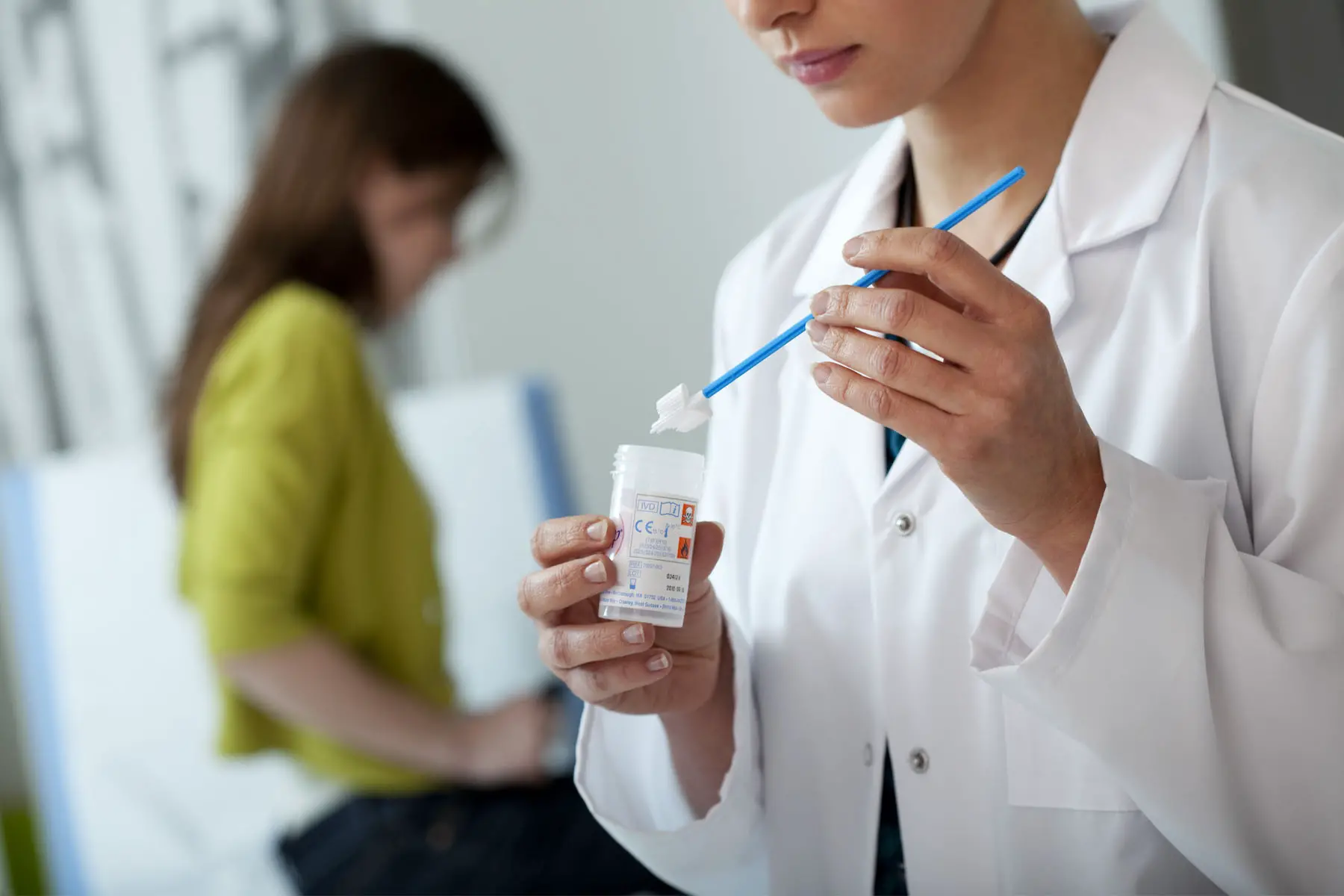
Do keep in mind that doctors also provide gynecological services as part of women’s healthcare in Luxembourg, so you can choose whether to see your GP or a specialist. Services include pregnancy care and advice, sexual health, screenings for infections and diseases, and family planning services. Most costs are reimbursed at the standard 88% rate through health insurance.
Gynecologists in Luxembourg work in health centers, family planning clinics, and hospitals. You can find a gynecologist through a recommendation from your GP or by searching on the following websites:
Women’s contraception in Luxembourg
It is worth noting that it was announced in 2020 that contraception would be made free in the future for both women and men of all ages. This includes the birth control pill, condoms, diaphragms, cervical caps, and the intrauterine device (IUD). However, there have been delays in implementing this change of policy.
Having said that, Luxembourg was still among the best-performing countries on the 2020 European Contraception Atlas. This is mainly due to the state reimbursing contraceptives at a rate of 80%, to all women under 30, and the fact that contraceptives are widely available in Luxembourg. You can pick up contraceptives at pharmacies (reimbursement with prescription) and also at family planning centers, including emergency contraception without a prescription.
The CNS has a list of all contraceptive methods available (in French). You can also check out MaContraception for details on how to access different types of contraceptives in Luxembourg (in French and German).
Maternity care services in Luxembourg
Public health insurance covers the majority of maternity care if you are having a baby in Luxembourg. This includes birth costs, prenatal and antenatal care. In addition, you will also get a minimum of 20 weeks of paid maternity leave. You can choose to give birth in a Luxembourg hospital, birth house, or at home. However, public insurance doesn’t cover home births.
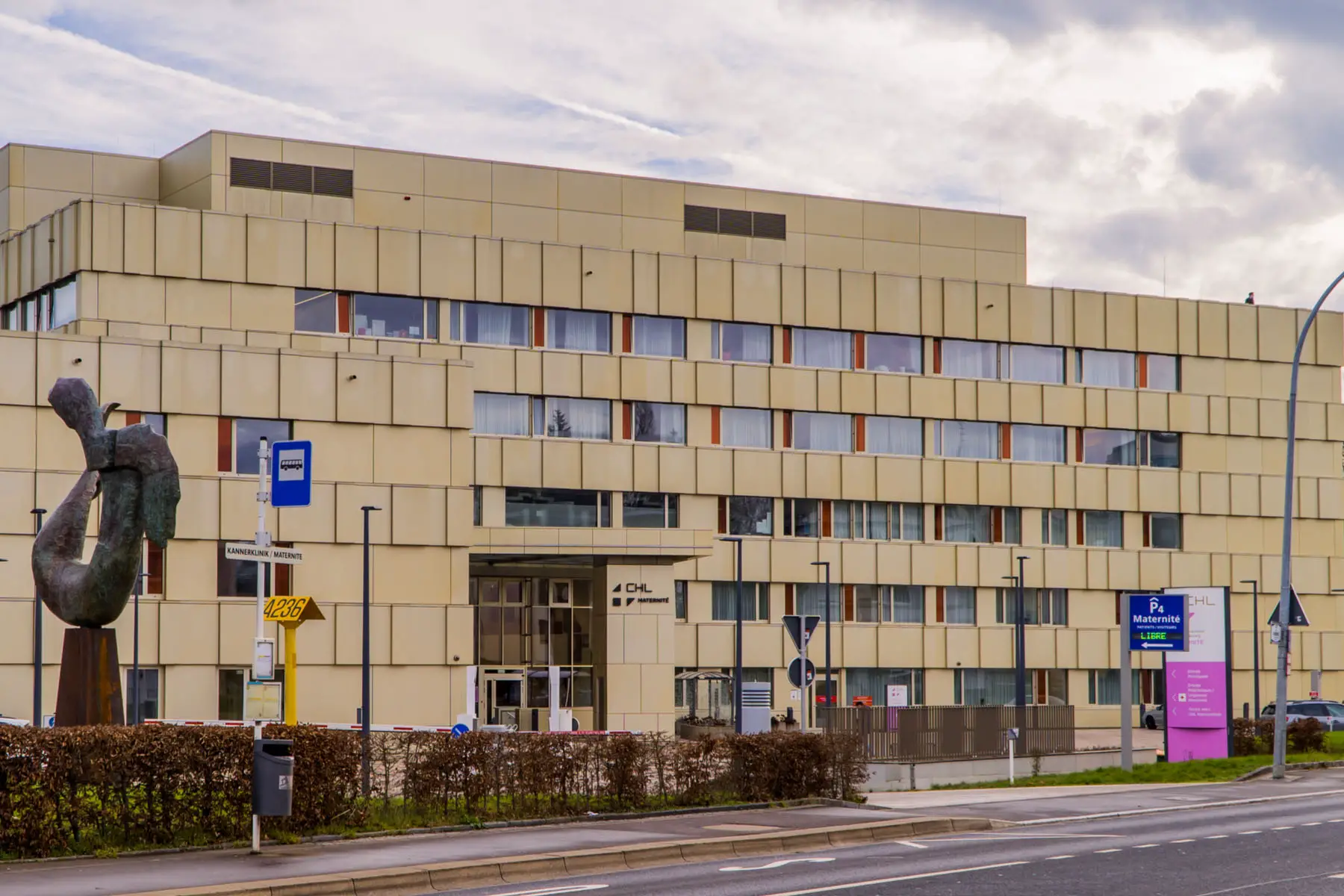
Your GP will be your chief point of contact during your pregnancy, although you can choose to see a gynecologist if you prefer. Midwives tend not to be the main point of contact when you have a baby in the Grand Duchy, but they are often involved in the delivery and postnatal women’s healthcare in Luxembourg. All the services that a midwife provides to you are reimbursed 100%.
Breastfeeding in Luxembourg
Mothers of newborns in Luxembourg have a legal right to two 45-minute breaks for breastfeeding each day which must be included as part of their paid working day. Keep in mind that you can also request an adjustment of working hours to fit your breastfeeding schedule.
You can access information and support on breastfeeding in Luxembourg from maternity hospitals, midwives, and organizations like La Leche League. There’s also the Ligue Médico-Sociale, which has twelve centers across Luxembourg and offers a telephone service for young parents.
Fertility treatment in Luxembourg
Women’s healthcare services in Luxembourg include fertility treatment. However, women are advised only to do so if they have been unable to conceive after twelve months. The following types of treatment are available through public health insurance:
- In Vitro Fertilization (IVF) – where the egg is removed from the ovaries, fertilized with sperm in a lab, and returned to develop in the womb.
- Intracytoplasmic sperm injection (ICSI) – an IVF technique where a single healthy sperm is injected into each egg to maximize chances of fertility.
- Intrauterine Insemination (IUI) – treatment where sperm is directly inserted into the womb.
- Artificial Donor Insemination (IAD) – insemination with semen from an anonymous donor.

You can access fertility treatment through your GP in Luxembourg and also by contacting a fertility clinic directly. Or you can search the OVU Surrogacy and Fertility Network for details of fertility clinics and venues providing treatment.
Abortion in Luxembourg
Laws on abortion in Luxembourg
Abortion in Luxembourg has been legal since 1978, with the latest amendments to the law coming in 2014. You can get an abortion up to 12 weeks into the pregnancy, or 14 weeks after your last menstrual cycle. However, doctors can permit late abortions if there is a significant danger to the mother or fetus.
Under-18s in Luxembourg need parental consent for an abortion if they are still under parental authority. Doctors have the right to refuse to carry out an abortion if they object on moral grounds. However, they have to refer the expectant mother to a qualified professional.
Getting an abortion in Luxembourg
You have to consult with your GP or a qualified gynecologist before getting an abortion in Luxembourg. And you need to undergo a three-day waiting period to reflect on the decision. Either your GP or a medical specialist, usually a gynecologist/obstetrician, will carry out the abortion. This is done at a hospital, clinic, family planning center, or a GP surgery.
There are two types of abortion in Luxembourg: medical abortions, which can be carried out up to seven weeks into the pregnancy; and surgical abortions, which can occur up to 12 weeks into the pregnancy. Health insurance usually covers the costs.
You can read more about abortion in Luxembourg in this Ministry of Health booklet.
Menopause in Luxembourg
Menopause can affect women aged between 45 and 65, with the most likely age being around 51. If you experience menopausal symptoms, you should consult your GP or gynecologist in Luxembourg.
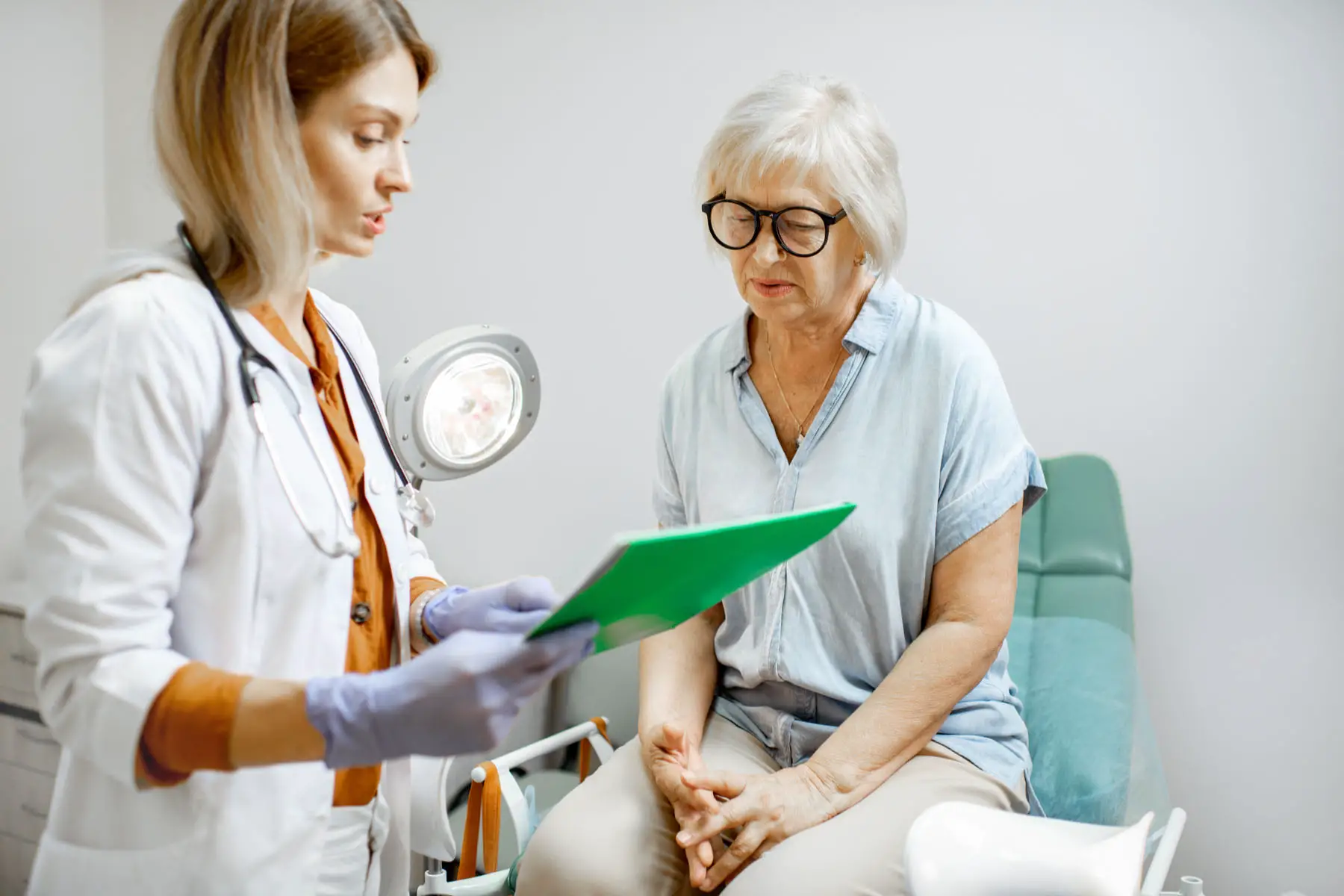
They may refer you to specialist treatment at a hospital or clinic. This can involve:
- Examinations, consultations, or treatments with specialists such as urologists, endocrinologists, cardiologists, radiologists, or rheumatologists
- Physiotherapy
- Lifestyle advice and counseling
- Complementary therapy such as acupuncture, sophrology, or homeopathy
- Dietary and nutritional advice and sessions
You should check with your health insurer to see what treatment they will cover for women’s healthcare in Luxembourg. If your public insurance doesn’t cover a suggested treatment, you can either ask for an alternative treatment or take out private insurance to cover costs.
Cancer screenings in Luxembourg
Luxembourg has relatively high rates of cancer among women, ranking 15th highest in the world with 292.5 women per 100,000 living with cancer according to the World Cancer Research Fund. It also has the second-highest rate of breast cancer in the world (109.3 per 100,000).
To meet women’s healthcare needs in Luxembourg, the government runs a national breast cancer screening program called the Mammography Program. This is a free program targeting women aged 50-70, inviting them for a mammogram every two years. You should receive an invite if you are signed up for public health insurance. Following this, you should then book an appointment at a radiology center, most of which are within hospitals in Luxembourg.
If the test reveals any abnormalities, you will then be sent for additional examination (usually an ultrasound, MRI, or biopsy). Around 5% of mammograms in Luxembourg reveal abnormalities.
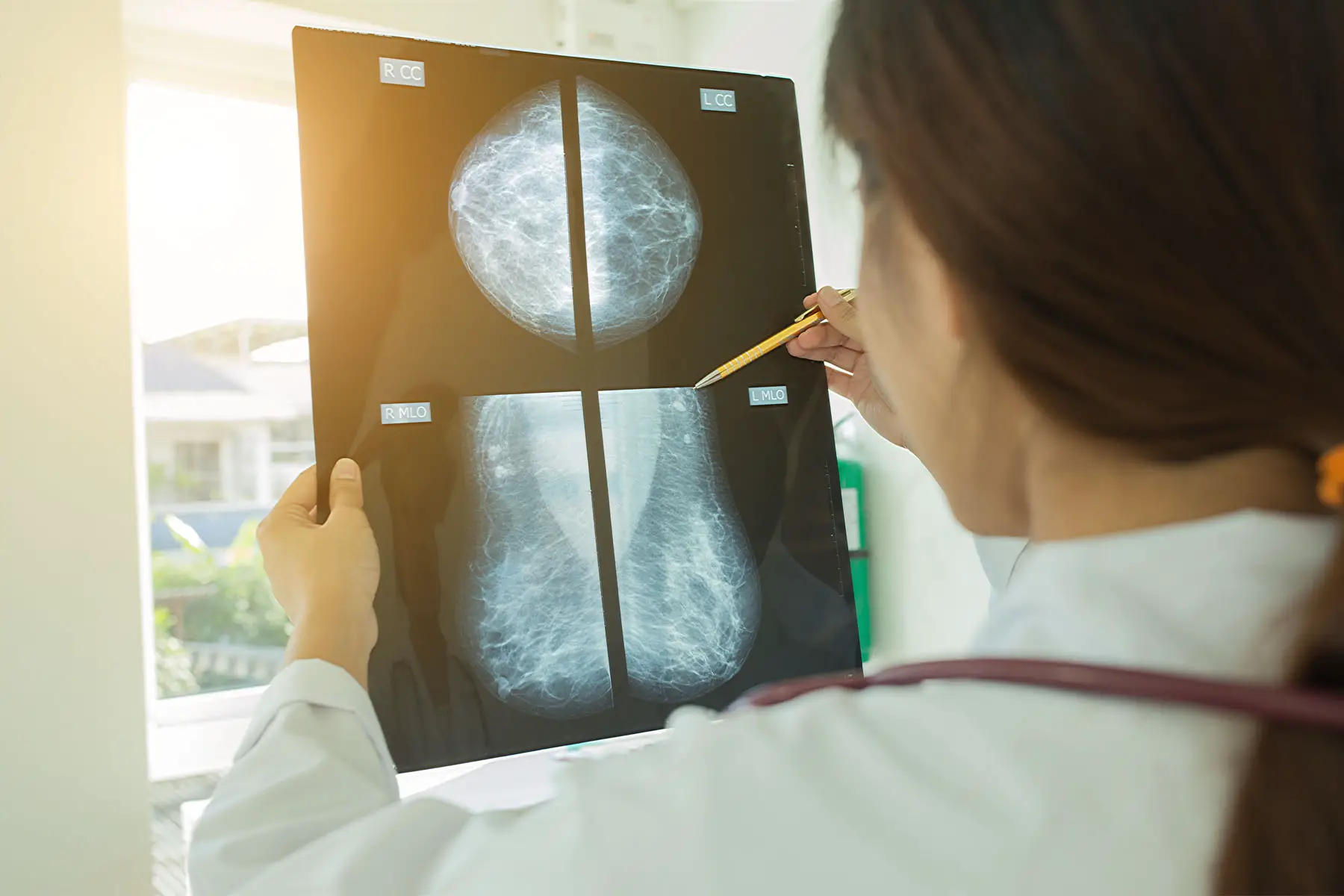
You can also access cervical cancer screening through your GP or gynecologist. Luxembourg doesn’t run a formal screening program for this, but females aged 15 and over can book in for a Pap smear test either yearly or once every two to three years. Your health insurance will cover this.
Sexual health in Luxembourg
You can access sexual health checks, advice, and tests for sexually transmitted infections (STIs) in several ways in Luxembourg. Costs are normally covered through health insurance. Options include:
- Consulting your doctor or gynecologist
- Visiting an emergency department of a hospital if you have a sudden and severe complaint
- Attending a family planning center or a specialist clinic
- Contacting the National Infectious Diseases Department
There are several facilities in Luxembourg, such as the Centre Médical, that provide free tests and advice. You can also consult the government health portal for information and advice on STIs.
Availability and cost of feminine hygiene products
Luxembourg reduced the cost of feminine hygiene products in 2019. The VAT rate came down from 17% to 3% on products such as sanitary towels, pantyliners, tampons, menstrual cups, and natural sponges. This has consequently made Luxembourg one of the lowest-priced countries for these products.
You can buy feminine hygiene supplies in Luxembourg in stores such as pharmacists and supermarkets.
Women’s clinics and health centers in Luxembourg
In addition to doctors’ surgeries and hospitals, you can also find family planning centers in Luxembourg that offer support, advice, testing, and counseling. Planning Familial has been running for over 50 years and operates three centers across Luxembourg (Luxembourg City, Ettelbruck, and Esch-sur-Alzette). Services are free and include both appointment-based and walk-in sessions.

You can also contact the Maisons Médicales if you have any non-emergency out-of-hours needs. These centers operate between 20:00 – 08:00, with facilities open until midnight and a telephone system thereafter.
The Editus website has a list of clinics and maternity services available through public health insurance in Luxembourg.
Women’s mental health services in Luxembourg
Both men and women can access several mental health services in Luxembourg free of charge. The Luxembourg League of Mental Health (La Ligue Luxembourgeoise d’Hygiène Mentale) offers support for sufferers of depression, anxiety, and a range of psycho-social disorders.
There are gender-specific advice and counseling services such as Women In Distress (Femmes en Détresse), which deals mostly with domestic violence-related issues, and the Pro-Familia Foundation which offers support for women experiencing financial problems, housing problems, or issues related to single parenting.
You can also search for psychologists or psychotherapists on the Doctena website or Collège Médical.
According to government statistics, women have suffered slightly more than men in Luxembourg in terms of mental health during COVID-19. In fact, 36% of women have reported a decline in their mental health since the start of the pandemic, compared to 29% of men.
Services dealing with eating disorders in Luxembourg
Reports suggest that eating disorders are on the rise in Luxembourg. Around 1% of young women experience anorexia nervosa, while between 1–2% experience bulimia nervosa. Meanwhile, binge eating disorder affects around 3% of adults, with around 60% of these women.
There are no specialist clinics or centers for dealing with eating disorders in Luxembourg. Support currently comes from GPs along with specialists such as nutritionists and psychologists. However, a global support network called Anorexics and Bulimics Anonymous (ABA) has set up weekly meetings in Luxembourg.
Services dealing with abuse and violence against women in Luxembourg
According to 2017 EU statistics, 38% of women in Luxembourg have experienced physical or sexual violence since the age of 15, which is higher than the EU average of 32%. This has led to negative health consequences for 71% of women in Luxembourg who have experienced this, again higher than the EU average of 68%.
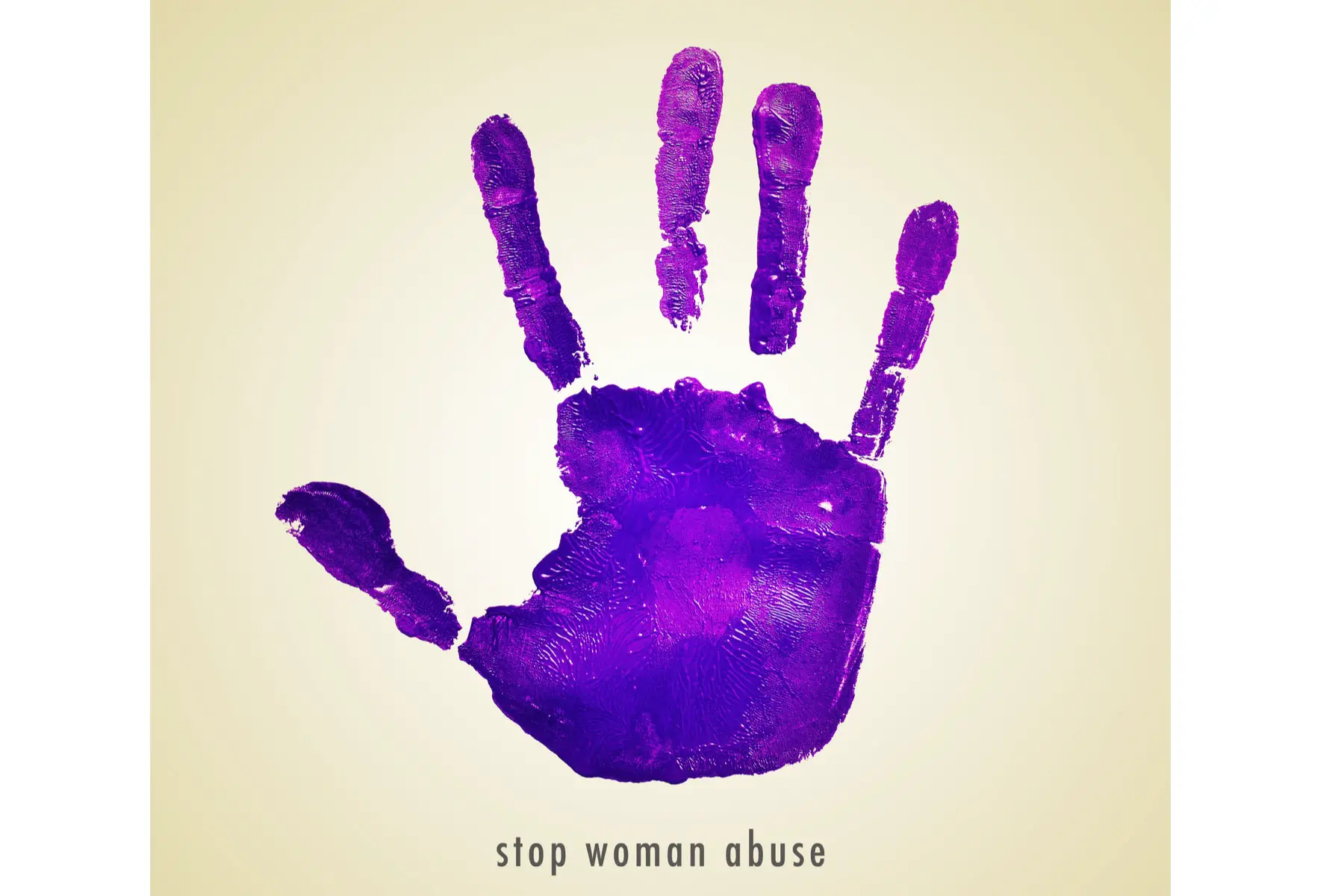
There are several organizations dedicated to meeting the physical and mental healthcare needs of women suffering abuse or domestic violence in Luxembourg. Women In Distress (Femmes en Détresse) run several services including refuge shelters, counseling, and legal support. Much of this is offered through their Assistance Service to Victims of Domestic Violence.
Other services are:
- Pro-Familia Foundation, which provides support and advice to women in distress and their children
- The Ministry of Equality between Women and Men, which has published information and awareness-raising materials you can download
If you experience domestic violence or feel threatened and need urgent support in Luxembourg, you can call the Domestic Violence Helpline on 2060 1060 (operates between 12:00–20:00) or the police on 113. See a full list of emergency service numbers in Luxembourg.
Useful resources
- Government of the Grand Duchy of Luxembourg – healthcare section of the government website.
- National Health Fund (CNS) – information on public health insurance.
- Sante.lu – government health portal with information on areas such as sexual health and cancer screenings (in French).
- Medicins Specialistes – search for specialist doctors in Luxembourg (in French).
- Planning Familial – family planning services in Luxembourg (in French).
- Women In Distress (Femmes en Détresse) – support for women experiencing or at risk of domestic violence and abuse (in French).




